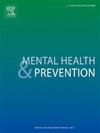儿童创伤与人格障碍特征之间的关系:一项普通人群的横断面研究
IF 2.4
Q2 Medicine
引用次数: 0
摘要
童年创伤(CT)包括情感、身体和性虐待,以及忽视是一个有充分证据的人格病理学发展的风险因素。虽然先前的研究已经建立了CT与人格障碍(PD)之间的一般关联,但特定创伤亚型对个体PD特征的差异影响仍未得到充分探讨,特别是在非临床人群中。目的:在不受心理困扰和人口学因素影响的情况下,研究高CT水平是否与PD特征严重程度增加有关,以及不同的CT亚型是否能预测特定的PD特征。方法对意大利社区2077名18-65岁成人进行儿童创伤问卷(CTQ)、人格障碍评定量表(ADP-IV)和症状量表(SCL-90-R)的问卷调查。相关和多元回归分析控制了年龄、性别、教育程度、婚姻状况和心理困扰。结果较高的CT水平与人格病理的总体严重程度显著相关,与心理困扰无关。情绪虐待是最强和最一致的预测因素,特别是与边缘、偏执、逃避和抑郁特征有关。身体忽视与反社会和依赖特征有着独特的联系。其他创伤亚型与PD特征的关系较弱或不太一致。结论情绪虐待对适应不良人格特征的影响是普遍存在的。这些发现支持创伤知情的评估方法,并强调将发展史纳入人格病理学的概念化和治疗的重要性。需要进行纵向研究以阐明因果机制并为预防策略提供信息。本文章由计算机程序翻译,如有差异,请以英文原文为准。
Associations between childhood trauma and personality disorder traits: A cross-sectional study in the general population
Background
Childhood trauma (CT)![]() including emotional, physical, and sexual abuse, as well as neglect
including emotional, physical, and sexual abuse, as well as neglect![]() is a well-documented risk factor for the development of personality pathology. While prior research has established a general association between CT and personality disorders (PDs), the differential impact of specific trauma subtypes on individual PD traits remains insufficiently explored, particularly in non-clinical populations.
is a well-documented risk factor for the development of personality pathology. While prior research has established a general association between CT and personality disorders (PDs), the differential impact of specific trauma subtypes on individual PD traits remains insufficiently explored, particularly in non-clinical populations.
Objective
This study examined whether higher CT levels are associated with increased PD trait severity and whether distinct CT subtypes predict specific PD traits, independent of psychological distress and demographic factors.
Method
A community sample of 2,077 Italian adults (aged 18–65) completed the Childhood Trauma Questionnaire (CTQ), the Assessment of DSM-IV Personality Disorders (ADP-IV), and the Symptom Checklist-90-R (SCL-90-R). Correlational and multiple regression analyses controlled for age, gender, education, marital status, and psychological distress.
Results
Higher levels of CT were significantly associated with increased overall severity of personality pathology, independent of psychological distress. Emotional abuse emerged as the strongest and most consistent predictor, particularly in relation to borderline, paranoid, avoidant, and depressive traits. Physical neglect showed unique associations with antisocial and dependent traits. Other trauma subtypes demonstrated weaker or less consistent relationships with PD traits.
Conclusions
Emotional abuse appears to have a pervasive impact on maladaptive personality traits. These findings support trauma-informed assessment approaches and highlight the importance of incorporating developmental history into the conceptualization and treatment of personality pathology. Longitudinal research is needed to clarify causal mechanisms and inform prevention strategies.
求助全文
通过发布文献求助,成功后即可免费获取论文全文。
去求助
来源期刊

Mental Health and Prevention
Medicine-Psychiatry and Mental Health
CiteScore
2.10
自引率
0.00%
发文量
22
审稿时长
24 days
 求助内容:
求助内容: 应助结果提醒方式:
应助结果提醒方式:


